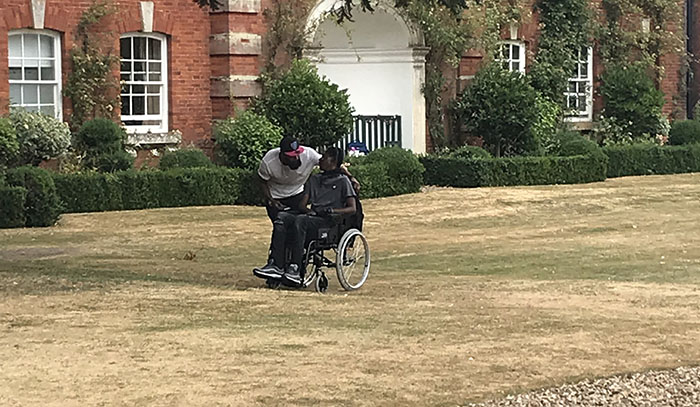1: Don’t be embarrassed
Talking about sex can sometimes feel awkward but don’t be embarrassed! You might find it useful to make some notes or record something about what you want to say. You could also practise what you want to talk about by yourself. Remember that other people are probably just as embarrassed as you!
2: Find someone you trust

If you’re finding it hard to talk about sex, then the first step is to find someone that you trust. This could be a parent, sibling, family member or carer. It could be a teacher or tutor. It could even be a nurse or a doctor. It will be easier to discuss things if you find someone that you can talk to.
3: It’s OK to ask questions
Never feel afraid to ask questions and never let someone shut you down. If you want to find out more about sex, intimacy and relationships then remember that you have the right to receive information and support.
4: Be body confident

No-one has a perfect body and most people feel insecure about their body some of the time. We all need to learn to love the body we have whether it is scarred, has tubes sticking out of it or bags attached. Learning to love ourselves and be confident in our own skin is often the first step to accepting who we are and being accepted by others.
5: Remember, it’s OK to make mistakes
It’s important to learn how to keep ourselves safe but it’s also important to take risks, make mistakes, and move on. We learn as much from what we do well as from what goes wrong. Whether you’ve dated the wrong person, gone on a one-night stand or put yourself in an unsafe situation, it’s best to talk about it and learn from what you might to differently in future.
6: Telling a new partner you have a life-limiting condition
Telling a new partner that you have a life-limiting condition can be a really difficult conversation to have. You might be worried about how they’ll react and what the future of your relationship might be. Only you can decide what information you share about you and your life but it’s important that you’re both honest about your feelings.
7: Know your rights

It’s important that you know what your rights are. The Sexuality Guidance and Standards (3rd Edition) will help you understand where professionals stand in supporting you. Do your research and be prepared to be assertive about your right to explore sex, sexuality, intimacy and relationships.
8: Be you

You are you, a unique individual. You need to ensure you are comfortable with who you are and are able to advocate and be assertive around your needs, and your rights. This is especially true if you identify as LGBTQ+ and may encounter more challenges around your sexuality or gender identity.
9: Keep talking…
Whether you’re in a relationship right now or not it’s really important to keep talking about sex! When we’re able to talk about sex we can tell people what we do and don’t like. We can also talk about the new things we’d like to try to help us achieve a fulfilling sex life.
Guidance and reports



Rate and Review
Rate this video
Review this video
Log into OpenLearn to leave reviews and join in the conversation.
Video reviews